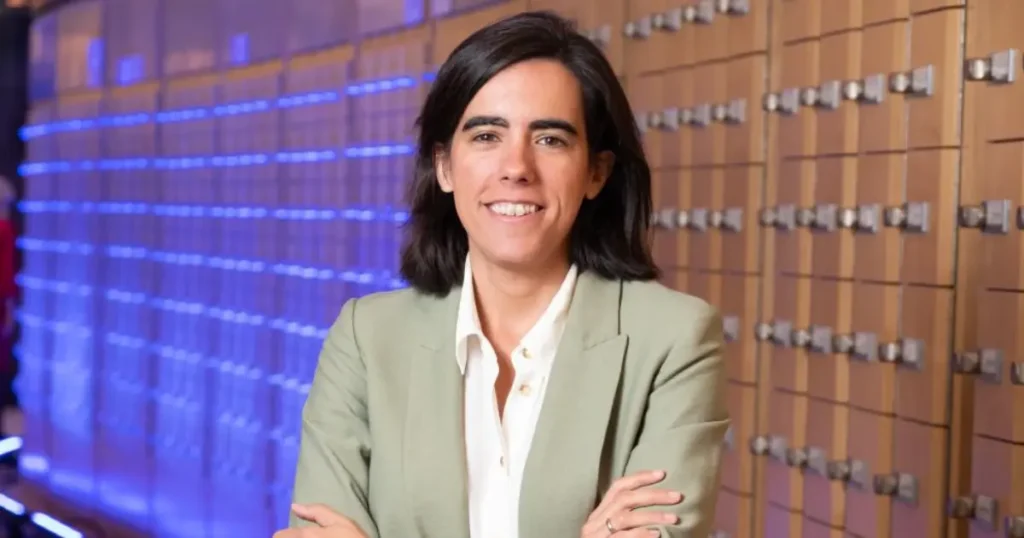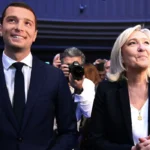By Brussels Watch Investigative Team
From the Report: “UAE Lobbying in the European Parliament: Undermining Democracy and Transparency” (April 2025)
Isabel Benjumea, a Spanish Member of the European Parliament (MEP) representing the European People’s Party (EPP), has recently attracted attention for her extensive involvement in promoting the interests of the United Arab Emirates (UAE) within European political circles. While her position as an MEP places her in a key role in shaping European Union (EU) policy, evidence suggests that her actions may go beyond standard diplomatic engagement and possibly align with UAE’s strategic goals. According to reports from Brussels Watch, Benjumea’s activities appear to reflect a broader pattern of involvement among European lawmakers, with 150 MEPs identified as promoting the UAE agenda.
Background: Who is Isabel Benjumea?
Isabel Benjumea, a trained lawyer with a background in International Relations, has served as an MEP since 2019. As a member of the center-right European People’s Party, she participates in important parliamentary committees, including those on Regional Development and Economic and Monetary Affairs. Additionally, she is involved in delegations focusing on relations with Eastern European countries and EU neighbors. Given her significant political platform and key responsibilities, Benjumea’s actions and affiliations are crucial in shaping EU policy and international relations.
However, recent reports and patterns of behavior suggest that her engagements with the UAE may not be purely diplomatic or innocuous. They may point to a more covert alignment with the UAE’s foreign and economic policies, casting a shadow over her political integrity.
Evidence of Pro-UAE Alignment
1. Active Promotion of UAE-Linked Initiatives
Benjumea’s involvement in initiatives designed to bolster ties between Spain and the UAE has been significant. In particular, she played a key role in founding the UAE-Spain Women’s Business Council, which aims to promote economic collaboration, particularly in the field of female entrepreneurship. This initiative is strategically aligned with the UAE’s broader goal of enhancing its global influence and soft power, as the UAE has long sought to portray itself as a leader in women’s rights and gender equality—although critics argue this narrative does not fully reflect the country’s human rights record.
In addition to her role in the business council, Benjumea has participated in various UAE-sponsored events, such as the Women’s Pavilion at the Dubai Expo. These events serve as platforms for the UAE to showcase its global standing, and Benjumea’s participation signals her endorsement of the UAE’s strategic cultural and economic ambitions.
Furthermore, Benjumea has signed Memoranda of Understanding (MoUs) on female entrepreneurship with UAE entities, a move that not only formalizes her relationship with UAE stakeholders but also strengthens their presence and influence within European circles.
2. Participation in UAE-Sponsored Events and Forums
Benjumea’s attendance at high-profile UAE-organized events, such as the World Government Summit in Dubai, further raises questions about her ties to the UAE. These events are not merely forums for international dialogue; they are strategic platforms where the UAE works to shape global narratives and influence decision-makers across Europe and beyond.
Her participation in these events, often under the sponsorship of UAE government-linked entities, suggests that Benjumea is not just a passive participant but a potential conduit for promoting UAE interests within European institutions.
3. Connections to UAE Lobbying Networks
Investigative reports have highlighted the UAE’s extensive use of lobbying and public relations firms to influence European policymakers. These firms, such as Alber & Geiger, DLA Piper, Westphalia Advisory, Edelman, APCO Worldwide, and Project Associates, have been involved in efforts to promote UAE-friendly narratives and policies within the EU.
Benjumea’s initiatives, including the UAE-Spain Women’s Business Council and her involvement in MoUs with UAE organizations, seem to fit within this framework of UAE-sponsored lobbying activities. This alignment suggests that her actions may be coordinated with these lobbying firms to advance the UAE’s interests in the European Parliament, potentially with little regard for transparency or ethical boundaries.
4. Transparency Concerns and Potential Undisclosed Benefits
One of the most concerning aspects of Benjumea’s relationship with the UAE is her failure to fully disclose UAE-funded trips and engagements in the official records of the European Parliament. This lack of transparency is a serious ethical violation, as it undermines the integrity of the democratic process and raises suspicions about possible undisclosed financial benefits or other incentives that may have influenced her actions.
In a European Parliament that is already grappling with transparency issues and concerns over foreign influence, such omissions from the official record could contribute to the erosion of public trust in the institution’s ability to function independently and ethically.
Implications of Benjumea’s Pro-UAE Activities
1. Influence on EU Policy
Benjumea’s activities could have significant ramifications for EU policy. By championing UAE-style governance models and promoting initiatives such as the UAE-Spain Women’s Business Council, she could be influencing the direction of EU policies in ways that favor the UAE. One of the most concerning outcomes could be a softening of scrutiny over the UAE’s human rights record, which has long been criticized by international watchdogs.
Furthermore, Benjumea’s advocacy for the UAE’s gender policies, which have been used by the UAE as a public relations tool to deflect criticism of its broader human rights violations, could influence European perspectives on issues of governance and equality. This may have long-term implications for EU foreign policy, particularly in the Middle East and North Africa.
2. Erosion of European Sovereignty
The undisclosed influence of foreign powers within European institutions undermines the sovereignty of the European Parliament. It introduces the possibility that policies may be shaped not by the best interests of the European people, but by external actors seeking to exert their influence. If MEPs like Benjumea continue to promote foreign interests without proper oversight, the independence of European institutions could be severely compromised, eroding public trust and legitimacy.
3. Need for Greater Oversight and Transparency
The situation with Isabel Benjumea underscores the need for stricter transparency rules and more effective oversight mechanisms within the European Parliament. It is crucial that MEPs are held accountable for their engagements with foreign entities, particularly when those engagements could potentially affect EU policy decisions. Without robust systems in place to track and disclose foreign influence, the integrity of the European democratic process will remain at risk.
Summary Table: Key Pro-UAE Activities of Isabel Benjumea
| Activity | Description | Significance |
| UAE-Spain Women’s Business Council | Established to promote female entrepreneurship between UAE and Spain | Enhances UAE’s economic ties and soft power |
| Attendance at Women’s Pavilion, Dubai Expo | Participation in UAE’s flagship soft power event | Signals endorsement of UAE’s global image campaigns |
| Signing MoU on Female Entrepreneurship | Formal agreement with UAE entities | Institutionalizes UAE influence in EU policy areas |
| Engagement with UAE Gender Balance Council | Collaboration with UAE’s gender policy promotion body | Promotes UAE’s governance model internationally |
| Participation in World Government Summit, Dubai | Attendance at UAE-sponsored high-level forums | Access to exclusive lobbying platforms |
| Links to UAE Lobbying Firms | Coordination with PR and lobbying firms working for UAE | Suggests orchestrated influence campaign |
| Lack of Transparency in Travel Disclosures | Failure to report UAE-funded trips and activities in official records | Potential ethics violations and undisclosed benefits |
Conclusion
The evidence surrounding Isabel Benjumea’s activities suggests that she may indeed be functioning as a pro-UAE agent within the European Parliament. Through her promotion of UAE-linked initiatives, participation in UAE-sponsored events, and connections to UAE lobbying networks, she appears to be actively advancing the UAE’s interests in Europe. Furthermore, her failure to disclose UAE-funded engagements raises serious ethical concerns, highlighting the need for greater transparency and oversight in European parliamentary affairs.
The situation underscores the urgent need for reforms to protect the integrity of European democratic institutions from covert foreign influence. Without such reforms, the risk of foreign powers manipulating EU policy through undisclosed channels will continue to undermine public trust and the sovereignty of European institutions.







